Paul Green death: Craig Greenhill reveals best friend’s two-decade mental health battle
Shattered friends and family have been left to ponder what more could have been done in the tragic death of rugby league great Paul Green.

NRL
Don't miss out on the headlines from NRL. Followed categories will be added to My News.
Paul Green’s best mate has revealed the rugby league legend had been privately battling mental health issues for almost 20 years before tragically taking his own life.
For the first time, his former Cronulla Sharks and Queensland Origin teammate Craig ‘Knuckles’ Greenhill has shared the painful details of Green’s mental health anguish that was known only among his tightest group of friends and family.
“It’s been there a long time,” Greenhill said.
“He first spoke about it probably 18 years ago.”
It was when the former Rothmans Medal-winning halfback retired from rugby league in 2004 that Greenhill believes his mate first experienced mental health struggles.
Stream every game of every round of the 2022 NRL Telstra Premiership Season Live & Ad-Break Free During Play on Kayo. New to Kayo? Start your free trial now >
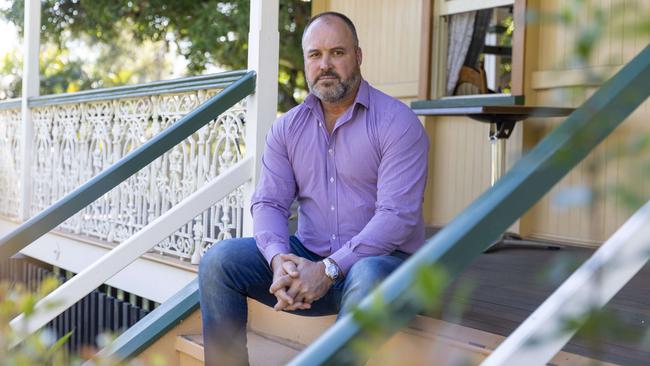
Both the adrenaline and public adulation suddenly stopped.
When he became just another former footballer.
Still he was able to put his private battles to one side to become one of the game’s most successful coaches, winning the historic NRL premiership at the Cowboys in 2015.
Green’s death has led to concerns around the wellbeing and welfare of former players and coaches across rugby league.
Greenhill, who spoke to deliver the family’s statement on the day of Green’s death, is critical of how the game has treated his mate.
He was brave and had such a big heart but was eventually beaten by mental illness.
“The NRL, it’s like a machine that can just spit you out,” he said. “They (officials) are ruthless and they’ll throw people under the bus because it’s a result driven business.”
BEST MATES
Knuckles and Greeny met as under-8s footy players in Wynnum-Manly juniors in Brisbane.
They fell in love with the game.
Their mateship went from park footy to high school to Sydney to play for the Cronulla Sharks.
From there they represented the Queensland Maroons in Origin.
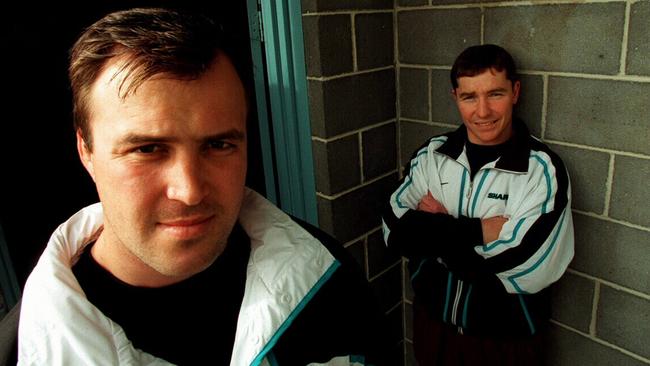
Greenhill was not just a best mate but a bodyguard on the footy field for the little halfback.
He was one player you didn’t want to mess with, hence the nickname Knuckles.
“My job was to look after the little guys,” he said. “And Greeny was my best mate.”
Off the field Green would return the favour.
“There was one trip we had to Mexico,” Greenhill recalls. “One night I got into a bit of strife with some bouncers. They got hold of me and Greeny came running over and said he’d pay them to let me go. I’d have been in big strife. They were big boys.”
He can still remember the early days at high school.
“At school Greeny was always very smart. He’d float between the nerds and the footy players.
“He was always conscious of his education and exam marks.”
THE MENTAL BATTLE
Shattered friends have been left to ponder what more could have been done.
His brain is now being donated to medical science as the family looks for answers.
“The thing is it didn’t seem to affect him all the time,” Greenhill said.
“We knew he had issues with (mental health) but he was generally happy.
“Whenever I asked, he said he was doing fine.
“Greeny loved Amanda and his kids. That’s the thing … his marriage and family, his mum and dad, it was great. And financially he was very sound.”
Greenhill did notice signs on a recent trip to Sydney for the Cronulla Sharks old boy’s reunion.
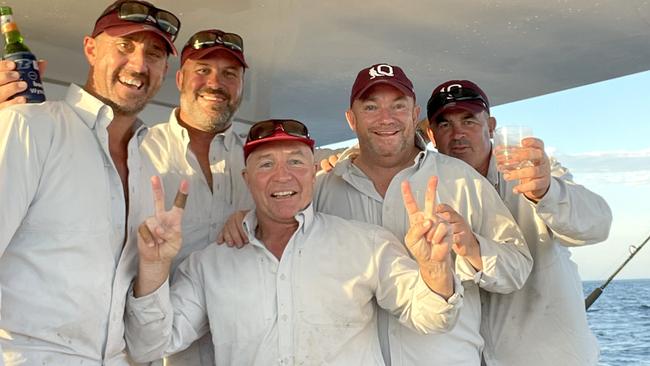
They shared a room at Rydges Hotel and partied like most old footy players do at their reunions.
“One morning I noticed he was struggling to get out of bed,” Greenhill said.
“I had to help to get him up and moving for the day.
“Then we played golf, went to the footy and he seemed really happy to be around all the boys. It’s always been a really tight knit group and Greeny enjoyed it.”
In an interview at Shark Park that night, Green said: “It’s great to be back – it’s a terrific night.”
THE SETBACKS
Green was axed by the Cowboys in 2020 and by the Maroons last year after an unsuccessful State of Origin campaign. It obviously hurt.
Still, two NRL clubs had approached him with assistant-coach job offers for next year.
“I was on the golf course with him when he got one of the phone calls,” Greenhill said.
It’s not like he had become an outcast.
However, Greenhill believes his mate was under-appreciated for what he delivered in Townsville. And not just with the football club and the grand final victory.
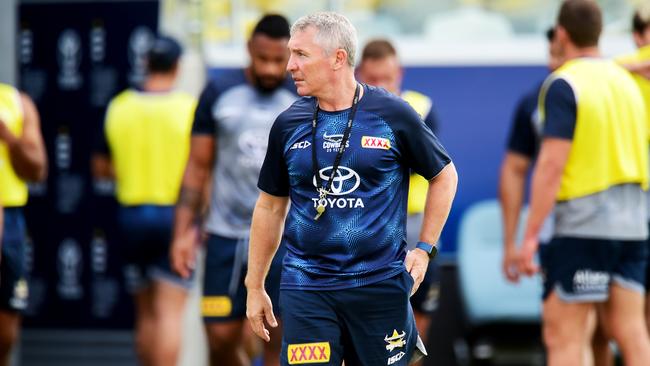
“Without Greeny there’s no new stadium up there,” he said. “He sat in front of the then prime minister Tony Abbott himself to sell the idea.
“He worked behind the scenes with a number of politicians to help secure the funding.
“I don’t think people realise what he did for north Queensland on the grander scale and how he was much more than a great footy coach.”
Greenhill is critical of the way Green was treated.
“The NRL, it’s like a machine, that can spit you out,” Greenhill said.
“Maybe they need to think more about the duty of care.
“You have these boards and CEOs and they’re full of amateurs.
“They are ruthless and they’ll throw people under the bus because it’s a result driven business.
“Greenie didn’t just deliver a title. He made that club great. He delivered the stadium.
“He set them up for the next 20 years. He didn’t do it all himself but I’m not sure they could have done it without him. It was more than just a coaching job.”
THE TREATMENT
It is unclear what level of treatment or professional help Green was seeking.
“I don’t think he was being treated properly,” Greenhill said.
“It scares me to think what was going through his head.
“He wasn’t afraid to talk about it with the people in our group but there’s been a bit of a stigma around it.
“Blokes have got to do more than just talk to their mates.”
Green’s wife Amanda has had a conversation around this issue with NRL CEO Andrew Abdo.
AFTER FOOTY
For all his hunger and desire to win premierships and play good footy, Greenhill says Green wanted to fly planes more than anything else.
“That’s why he worked so hard at school,” Greenhill said. “His goal was to be a commercial pilot when he finished playing football.
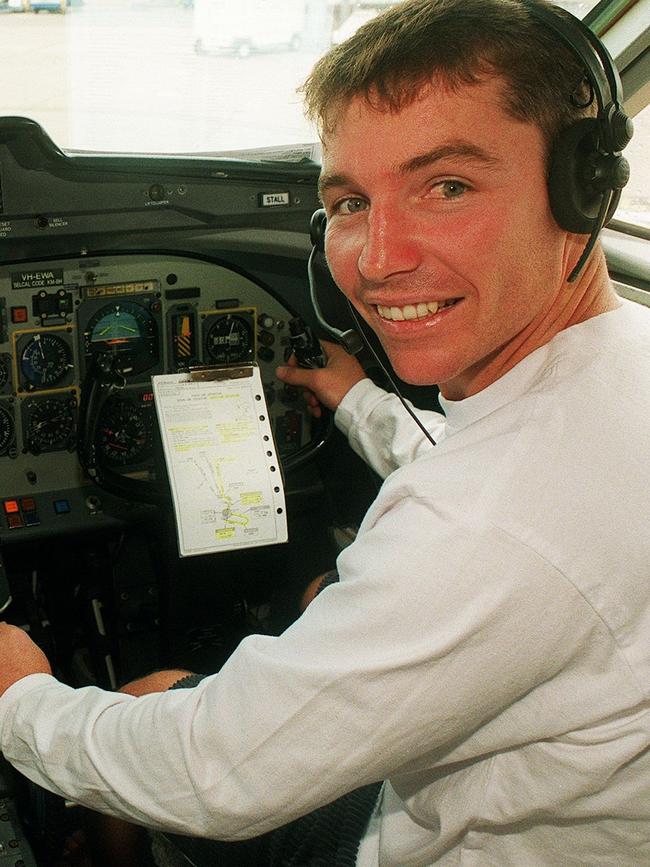
“Through footy he had a couple of contacts at the old Ansett Airlines who were going to help.
“But then he went into coaching instead.
“And he was so bloody good at it. Greeny was very particular about everything he did.”
He did a good apprenticeship through grassroots in Brisbane and then under super coaches Wayne Bennett and Trent Robinson.
“He was patient and waited for the right opportunity,” Greenhill said.
“At the Cowboys the players wanted to play for him.
“Johnathan Thurston, Matt Scott, Jason Taumalolo … all of them. To make a couple of grand finals and to win a comp you really need to be on top of your game.
“The Cowboys were always a good club but Greeny gave them that final bit of polish. He taught them how to win. Winning became their DNA.”
The leadership skills from being the Sharks and Maroons player spilled across to his coaching.
“He was so competitive on a football field,” Greenhill said.
“A great talker, a great communicator. He was always steering the team and telling us what to do. It was a huge strength of his.”
THE HAPPIER TIMES
The four things Green loved were his family, friends, footy and fishing.
“He’s always been big on family,” Greenhill said, “He adored them, he was proud of them and he was always talking about them.
“The trips away we had … you form a bond from kids starting out in juniors, then NRL, then Origin … and then lifetime mates.”
As a young player new to Sydney there was a mischievous side.
Knuckles has a million stories.
How the Queensland players at the Sharks liked to egg the NSW boys, their cars and occasionally their houses.
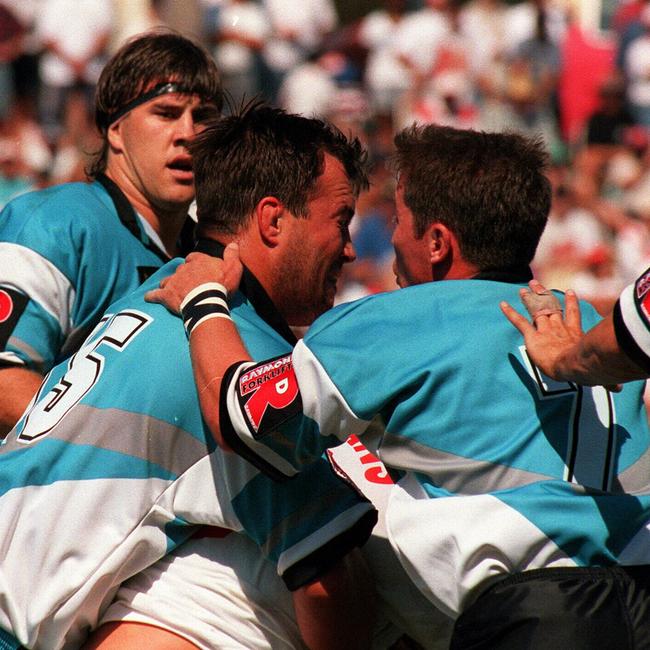
“One of the boys, Glen Hogan, was doing the car park security at Cronulla RSL,” Greenhill said. “Me and Greeny drove up with about three dozen eggs and started throwing them at the poor bloke.”
It became a huge joke when Green took over the Cowboys and had to discipline champion forward Jason Taumalolo for doing exactly the same thing in Townsville one night.
“We were all ringing Greeny up and saying you’ve got to let him off,” Greenhill said.
“As he was actually meeting Taumalolo we were ringing and texting him.
“He then burst out laughing in front of Jason as he was supposed to be disciplining him.”
Taumalolo was eventually fined $2500 and Green’s mates never let up on him.
“That’s Greeny, he could have a serious side, but liked a joke and a gee-up,” Greenhill said.
“That’s why we loved him. And that’s why we’re really missing him.”
More Coverage
Originally published as Paul Green death: Craig Greenhill reveals best friend’s two-decade mental health battle





